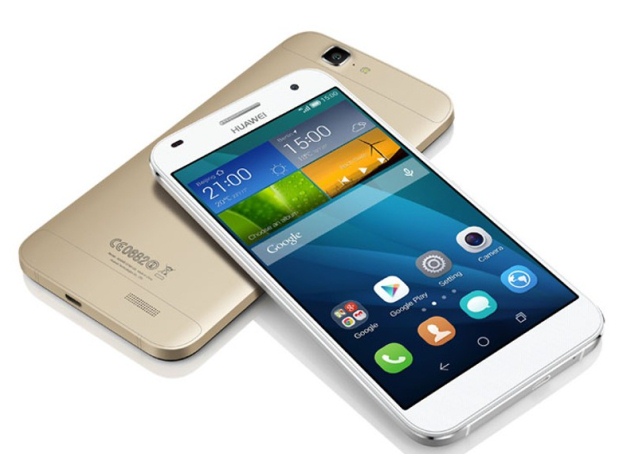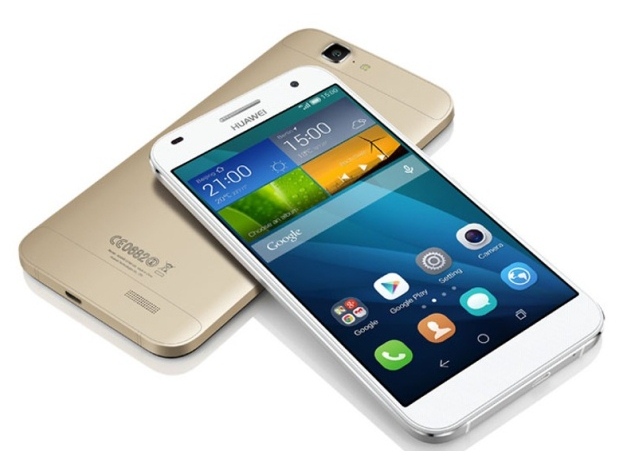Huawei Ascend G7 is another mid range Android smartphone from Huawei comes in the metal body design.
Huawei has installed 5.5-inch IPS-matrix with a resolution of 1280 x 720 pixels in Ascend G7. The pixel density of 267 pixels per square inch, which by today’s standards a bit. Of course, with this area of the screen you can see the individual pixels with the naked eye. This is especially noticeable on the rounded edges of apps icons. The display is covered with a protective glass Gorilla Glass 3, which protects the surface from scratches and fingerprints cluster and the glass handles perfectly. Transfer of colors, contrast, viewing angles – everything is on the usual for IPS-panel high level. In the settings you can set the color temperature of the screen by itself. Suffice it to move the slider in the right direction, or leave everything as is. As well as in the LG G3 and HTC One M8 here a mechanism awakening dual screen touch to it. This is very handy thing to which quickly get used to, and that you should definitely adopt. Auto Lighting Optimizer has no problem. Even with the automatic control of lighting we put the slider to the maximum, since the battery is installed very capacious, so energy consumption for lighting is small.

Specifications of Huawei Ascend G7:
- Qualcomm Snapdragon processor 410 (MSM8916) with a frequency of 1.2 GHz (quad-core Cortex-A53)
- GPU Adreno 306
- RAM 2 GB
- Memory 16 GB (actually 11.27 GB available)
- Support for memory cards microSD (up to 32GB)
- Display 5.5″ based on IPS panels with a resolution of 1280 x 720 pixels, 267 ppi
- 13 megapixel main camera
- 5 megapixel front camera
- Sensors: accelerometer, gyroscope, ambient light sensor and proximity, magnetic compass
- Connectors: USB 2.0 (OTG), 3.5 mm audio output
- Non-removable battery 3000 mAh
- OS Android 4.4.4
- Version of the shell EMUI 3.0
At this time in Huawei did not dare to install its own processor, and confined the brainchild of Qualcomm. Not the most efficient solution, but not the worst option. Separately we want to mention the presence of NFC. For many mobile devices from Huawei that question was painful, as this wireless module ignored by developers. In G7 situation corrected and set the standard for most Android-smartphone wireless chip. Yay!
As for the system performance, there is no problem. Animation is quite slow, and the transitions from one window to another do not freeze. The only weak point of the system is its Gallery. Usually in library a lot of pictures (at least two or three hundred shots), so an embedded application with this volume copes very tight. After switching to a specific album goes at least 10 seconds until all goes well.
Also when scrolling list of images as seen tangible brakes, which will eventually load reduced, but still will not disappear. Well, this is mid-range smartphone but still nice as it comes with 2GB RAM and good design. If you were looking for high-end device from Huawei then your search would end in coming months, near about the Galaxy Note Edge 2 release date.




